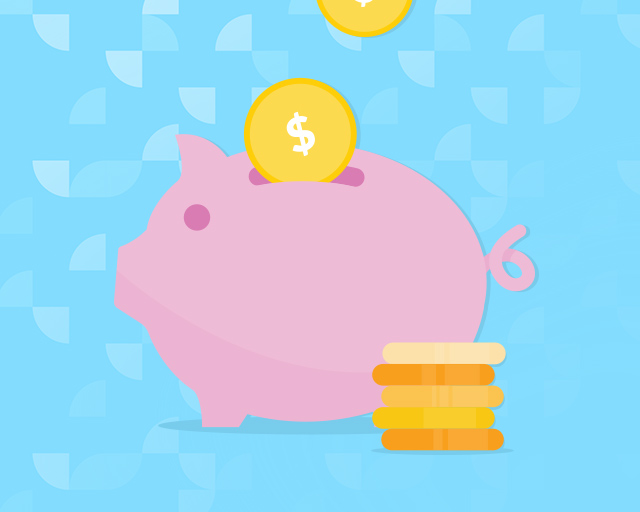

what is financial literacy?
Financial literacy is when you have the knowledge, skills and tools to help you make financial decisions. Then you can take actions that will get you closer to not only reaching your goals, but helping you be prepared for the future.
why is financial literacy important?
The more you know and understand personal finances, the more confident you can be when dealing with day-to-day life, as well as those unexpected situations that you may have to face.
Here’s how your financial literacy affects budgeting, planning for emergencies, managing debt and planning for retirement.
understanding how to budget
Budgeting is a good first step toward taking charge of your finances. When you create a monthly budget, it’s helpful to understand what your monthly income is. Next, how you can use it to save money, start and reach financial goals, get out of debt, and live within your means.
New to budgeting? A basic budget is a good place to start. Other options include 50-30-20 or zero-based budgeting. There’s great info about those three budget types here on our blog. We’ll put links to those at the end of this article.
planning for financial emergencies
You may already accept that unexpected and unplanned financial expenses can and will happen. If you’re financially literate, you will plan for them by setting money aside in an emergency fund.1
An emergency fund can help cushion the negative impact that these expenses can have on your finances. Without an emergency fund, you could have to pay for them with credit cards and loans or use other savings or retirement funds.
understanding how to manage debt
Managing debt is more than making monthly payments on what you owe. It’s also taking time to learn how debt can impact your credit.
Like how payments, account balances and how long you’ve had your accounts can affect your credit history and credit score.
It also means using your budget as a tool to help you figure out how to pay off the debts you have.
planning for retirement
You’re likely to spend 20 or more years in retirement, so it’s important to save for it. That means thinking about when you want to retire and how much money you think you’ll need.
More importantly, it means finding out as much as you can about the retirement funds that are available to you based on your current situation.
Before making any investment, check with a tax pro, your accountant or the IRS. You’ll want to make sure you understand your options and if any of them have specific rules or restrictions.
how to build financial literacy
You can build financial literacy in two ways: education and action. In other words, learning what you can about a financial topic, then using what you learned.
1. education
There are tons of places you can get free information about finances. Here are a few suggestions:
our Now You Can blog
Scroll to the top of this page for a link to “all articles” or click on the magnifying glass icon to search for a topic.
your bank, credit union or credit card company
Some have free online tools and phone apps, as well as articles on their websites.1
podcasts
You can listen to podcasts almost anywhere. Search “personal finance podcast” online and try listening to a few. If don’t like one right away, skip to the next one.
social media
Yes, it’s possible to learn about finances on popular social media channels. Do an online search for “personal finance experts social media” online to get started.
e-newsletters
Some of the experts on podcasts and social media may have free e-newsletter subscriptions. You can also try an online search for e-newsletters on personal finances.
library books
Books are definitely old school, but still a good way to learn. By using the library, you’ll have access to lots of titles without having to buy them.
2. action
However you decide to educate yourself, when you learn something new, try to put that knowledge into action as soon as you can.
For example, say you read our blog article on budgeting (it’s our most popular, btw). And maybe you’ve never had a budget or gave up on the one you sort of started in 2012. When would be a good time to start a new budget? As soon as you can.
By starting and using that budget, you can quickly learn about the power of a monthly budget, which can increase your financial literacy.
Perhaps you listened to a podcast and learned about a free IRS tool that can help you check if you’re having the right tax amount withheld from your paycheck.2 When should you try using it? You guessed it, as soon as you can.
And just like our budget example, using the tax tool you learned about can help increase your financial literacy. We’ll include the link to the tax tool at the end of this article.
understanding credit is important to your financial literacy
Your credit report and credit score are the backbone of your financial life.1
Banks, credit companies and other lenders consider these two aspects of your credit history when you apply for credit.
A good credit score can help you get approved. You may also get lower rates, which can save you money on interest charges.
How is a credit score calculated? We’ll use the FICO® Score as our example. Here are the factors FICO uses to get your credit score:3
- payment history
- (35% of your score)
- Have you made payments on time?
- amounts owed
- (30% of your score)
- How much of your available credit is used?
- length of credit history
- (15% of your score)
- How long have you had credit?
- new credit
- (10% of your score)
- Are there a lot of credit inquiries and new account openings?
- credit mix
- (10% of your score)
- What kind of accounts do you have?
Once you know how your FICO® Score is calculated, you can start taking steps to try and improve it.
One other key part of increasing your financial literacy is know where your credit stands today, so don’t forget to check your credit report regularly. Thanks to Equifax, Experian and TransUnion, you can get a free weekly credit report now through April 20, 2022 at AnnualCreditReport.com.4
Want to learn more about credit reports and scores? Look in the helpful links section for an article about them.
helpful links
Now You Can articles
basic budgeting
https://blog.fingerhut.com/a-budget-can-improve-your-relationship-with-your-money/
50 20 30 budget and zero-based budgeting
https://blog.fingerhut.com/beyond-basic-budgets-two-popular-budget-methods-for-managing-your-money/
credit reports and scores
https://blog.fingerhut.com/introduction-to-credit-reports-and-scores/
IRS tax tool
https://www.irs.gov/paycheck-checkup
1 https://www.experian.com/blogs/ask-experian/what-is-financial-literacy-and-why-is-it-important/#s4
2 https://www.irs.gov/paycheck-checkup
Disclaimer
FICO is a registered trademark of Fair Issac Corporation in the United States and other countries.








